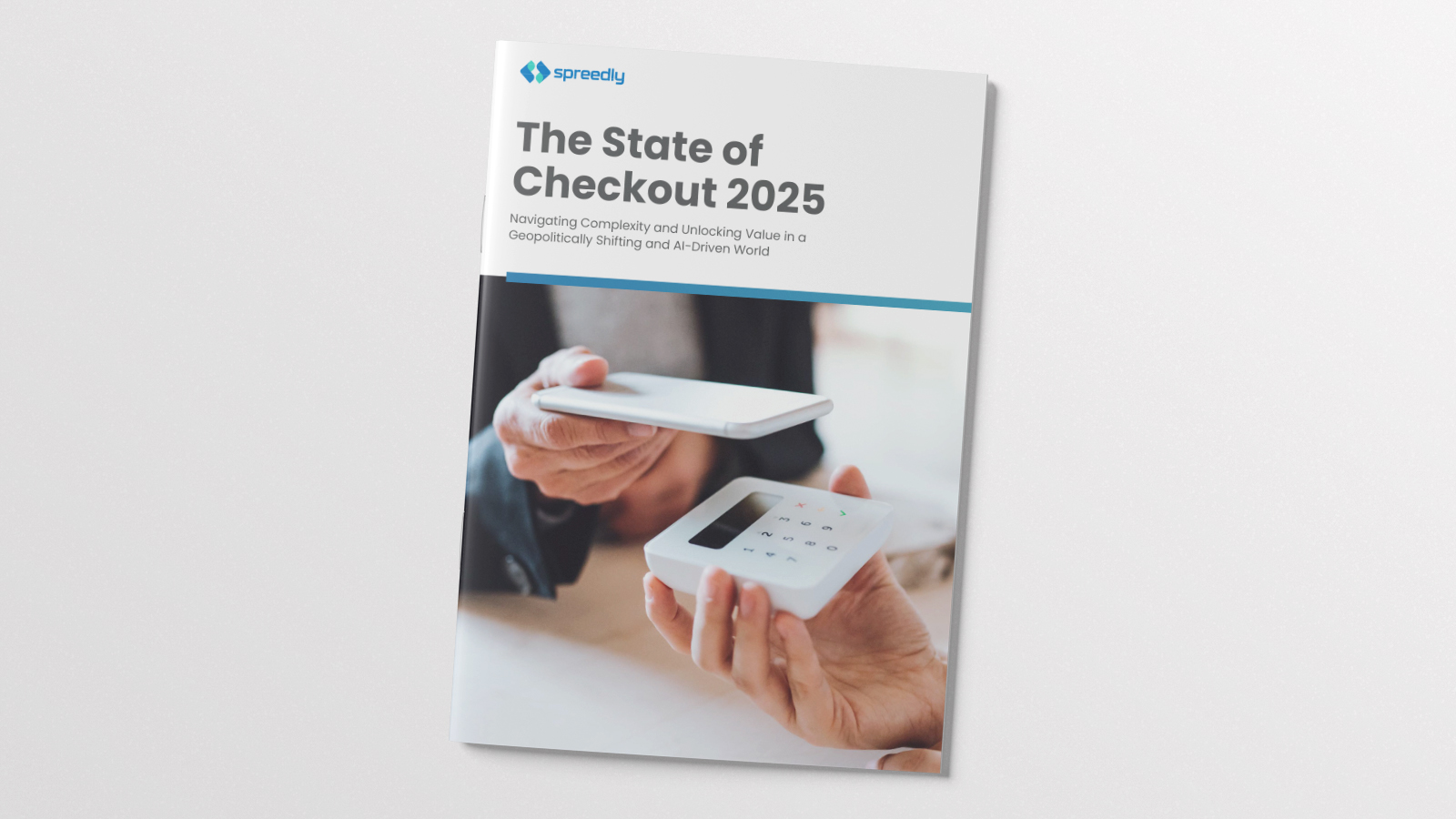
In July, Spreedly’s Andy McHale presented at the PaymentsEd conference with US Trans Corp’s Wade Tetsuka. The collaborative session dove into the specifics of harmonizing revenue through the use and implementation of payment orchestration.

As the largest player in the orchestration space, Spreedly shared several insights into what it takes to maximize both transaction success and customer satisfaction. Spreedly’s payment orchestration platform expanded the reach of US Trans Corp’s payment stack through intelligent payment management and data-driven optimization designed to ensure both compliance and revenue growth. U.S Trans Corp’s payment stack is used today in the Microsoft Dynamics 365 platform to help Microsoft offer a modern and open payments platform for customer collections (AR).
Today, they reflect on findings revealed during the conference and Spreedly’s role in minimizing the complexity and cost of achieving a multi-provider strategy.
Over to Andy and Wade!
Conference Insights on the Biggest Payment Challenges in 2024
We really enjoyed meeting with several conference attendees and we got to join in on many of the panels and speaking sessions to gain further insights into the top challenges of payments and revenue optimization.
Through our discussions, we identified several prevalent questions and concerns among merchants:
What’s causing the cost of payments to rise?
When covering the rising cost of payments, different panelists shared different opinions.
While some agreed that interchange fees and overall system complexity play a major role in rising costs, others spoke on the burden of PCI compliance and its impact on cost efficiency.
One specific problem that stood out was the need to improve lines of communication between businesses and their customers to prevent unnecessary chargebacks. Panelists agreed that companies must encourage customers to come to them first with payment-related issues rather than straight to their card issuers.
What are the most significant fraud risks facing merchants today?
Mastercard’s First Party Trust Program presentation revealed that first-party fraud is undoubtedly the most common threat for merchants to watch out for, accounting for 75% of card-not-present (CNP) fraud instances among digital goods merchants.
Meanwhile, Worldpay’s The Dark Side of Discounts presentation noted the influence of promotional abuse on the increase in first-party fraud. Worldpay speakers highlighted the importance of using tokenization and PAR values to better identify new versus existing customers, thus helping to reduce abuse of promotions.
What role does Open Banking have to play in the future of payments?
Plenty of our conference discussions centered around the rising role of Open Banking.
These conversations came paired with concerns about improving authorization rates and merchant onboarding processes. Open Banking addresses such challenges by creating a more connected ecosystem that can integrate multiple payment processors and providers into a singular digital environment.
Adyen’s presentation on Open Banking Myth Busting showcased the Pay by Bank method, which allows payments to be made directly from a bank account rather than through a traditional credit or debit card. The presenters revealed that Pay by Bank can help businesses save an average of 60% in payment costs compared to card-based payments, and that it significantly reduces the risk of fraud and identity theft.

Doing More in Payments with Spreedly
The challenges discussed above tie in neatly with Spreedly’s own presentation at the conference, which was all about the key payment difficulties and how payment orchestration helps to solve them.
Specifically, Andy and Wade covered how orchestration has helped to simplify the complexities of Card on File, transaction routing, and 3DS:
Card on File
Embedded payments have become the norm in digital payment settings, especially in e-commerce.
Card-on-File (CoF) flows serve as the base of embedded payments and can streamline checkout processes for returning customers, as well as recurring payment processes for merchants. CoF complications stem from the need for advanced vaulting that goes beyond just valuting a PAN or token, as every network maintains differing rules for identifying customer-initiated versus merchant-initiated transactions.
The addition of Spreedly’s orchestrated management within this flow produces several vital results:
- Network transaction ID (NTID) management can be simplified by vaulting NTIDs and authentication tokens alongside the corresponding payment methods
- Field mapping can be standardized across payment providers, leading to fewer disputes
Transaction Routing
A multi-provider strategy is a necessity for increasing the success and profitability of transactions.
Integrating multiple connections into a payment stack allows merchant service businesses, like US Trans Corp, to deliver high authorization rates at the lowest costs possible. The use of Spreedly’s retry logic can salvage soft declines and keep valid transactions flowing, all while enabling the best routing based on specific conditions of success (such as cost or strategic commitments).
When outages occur, automatic failover kicks in, shifting traffic quickly to a different processor or gateway. Rules-based routing enables businesses to determine their ideal re-routing rules to prevent revenue loss and customer dissatisfaction in their payment environments.
3DS
3DS is used widely not just for supporting the SCA requirements of PSD2 in the EEA, but also for mitigating fraud and shifting liabilities in other regions. When paired with payment orchestration, 3DS can support both SCA and non-SCA scenarios across different regions and payment providers.
Spreedly users can leverage a single integration and API call to automate 3DS outcomes and management. Moreover, the orchestration platform can be used to automatically vault authentication outcomes and IDs, storing them for later use in both customer-initiated and merchant-initiated use cases.
The end result is new opportunities for merchants and merchant services to not only fulfill the necessary PSD2 requirements but also optimize flows outside of the PSD2 scope.

Solve Your Payment Pain Points with Spreedly
The PaymentsEd conference reinforced our long-held stance at Spreedly that modern payment solutions and multi-provider strategies are absolute necessities for maximizing revenue.
It’s not just our belief, either. Spreedly data shows that 7.9% of failed transactions can become successful when immediately retried on a second gateway, and our customers experience an average success rate uplift of 0.76% when using our Recover solution.
Contact us today to discover how we can strategically optimize your transaction performance.




